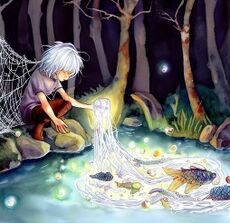Attention: Difference between revisions
imported>Jacob Robertson No edit summary |
No edit summary |
||
| (46 intermediate revisions by 2 users not shown) | |||
| Line 1: | Line 1: | ||
{{Map of Everyday Enlightenment | {{Map of Everyday Enlightenment | ||
|HideBeacons=no | |HideBeacons=no | ||
| | |HideRealms=yes | ||
|HideDeluded=yes | |HideDeluded=yes | ||
|HideLearning=yes | |HideLearning=yes | ||
| Line 12: | Line 11: | ||
|HideAssociation=yes | |HideAssociation=yes | ||
|HidePathways=yes | |HidePathways=yes | ||
| | |HideLenses=yes | ||
|HideTrails=yes | |HideTrails=yes | ||
|HideGuides=yes | |HideGuides=yes | ||
|HideLandmarks=yes | |||
}} | }} | ||
{{Beacon Info Box|Name={{PAGENAME}}}} | |||
== Overview == | == Overview == | ||
{{ | {{Attention Overview}} | ||
== {{Header Type|Type=Credo|Name=Experience the Now}} == | == {{Header Type|Type=Credo|Name=Experience the Now}} == | ||
| Line 31: | Line 31: | ||
== Primary Lenses of Attention == | == Primary Lenses of Attention == | ||
[[File:Lenses of Attention.jpg|alt=Lenses of Attention|thumb|Lenses of [[Attention]]]] | [[File:Lenses of Attention.jpg|alt=Lenses of Attention|thumb|Lenses of [[Attention]]]] | ||
{{Lenses Overview}} | |||
Attention, as a Beacon of Everyday Enlightenment, possesses multifaceted aspects that can be better understood through distinct Lenses. These lenses provide us with different perspectives on how to focus, be present, and fully experience each moment in our lives. Each lens gives us a unique way to explore and understand the complexities and subtleties of the concept of Attention. Together, they shine a comprehensive light on this crucial path to mindfulness and presence in the now. | Attention, as a Beacon of Everyday Enlightenment, possesses multifaceted aspects that can be better understood through distinct Lenses. These lenses provide us with different perspectives on how to focus, be present, and fully experience each moment in our lives. Each lens gives us a unique way to explore and understand the complexities and subtleties of the concept of Attention. Together, they shine a comprehensive light on this crucial path to mindfulness and presence in the now. | ||
=== | {{Lens Overview|Mindfulness}} | ||
{{Lens Overview|Non-Judgment}} | |||
{{Lens Overview|Presence}} | |||
=== Concentration === | |||
Concentration pertains to the ability to direct your mental resources to a specific point of focus, resisting the pull of external stimuli or wandering thoughts. Practicing concentration can lead to improved attentional control, enabling you to be fully present and immersed in your current experience. It is the cornerstone for most meditative practices and a critical element for living in the present. | |||
== Other Lenses == | == Other Lenses == | ||
These Lenses are additional ways of learning and practicing Attention and help to round out what it means to Experience the Now. | These Lenses are additional ways of learning and practicing Attention and help to round out what it means to Experience the Now. | ||
=== | === Pure Experience === | ||
Pure Experience is the state of direct, unmediated perception and awareness. It's when the division between the experiencer and the experience fades, leaving just the raw, unfiltered experience. By engaging in mindful practices like meditation, one can strive to reach this state of pure experience - observing the world directly, without the filter of concepts or preconceived notions. This understanding moves us beyond the duality of subject-object perception towards a more holistic, integrated understanding of reality. The end goal of cultivating this understanding of pure experience is a state of unadulterated, direct perception that can lead to profound insights and a deep sense of interconnectedness with the world. | |||
{{Lens Overview|Insight}} | |||
{{Lens Overview|Intention}} | |||
== Resources == | |||
{{Resources Section|Type=Beacons|Value=Attention}} | |||
{{#set: | |||
|Credo=Experience the Now | |||
}} | |||
[[Category:Beacons|{{Category Marker}}]] | [[Category:Beacons|{{Category Marker}}]] | ||
{{Page Type|Type=Beacon|Name={{PAGENAME}}}} | {{Page Type|Type=Beacon|Name={{PAGENAME}}}} | ||
{{DEFAULTSORT:Beacon1}} | |||
Latest revision as of 14:07, 30 September 2023
| Beacon: Attention | |
|---|---|
| Credo | Experience the Now |
| Lenses | Mindfulness Non-Judgment Presence Insight Intention |
Overview
Attention, one of the three Beacons of Everyday Enlightenment, illuminates the path to presence and mindfulness in our daily lives. The core of Attention is fostering a profound connection with the immediate unfolding of life, moment to moment. By developing skills centered on Attention, we endeavor to cultivate a mindful awareness that significantly reduces suffering, enhances mental clarity, and deepens our appreciation of life's inherent beauty.
One key aspect of Attention lies in learning to release the grip of distracting thoughts and emotions. These might lead us away from what we truly desire to focus on or, worse still, inflict undue pain and suffering. Engaging with the world through the lens of Attention allows us to remain centered, irrespective of the turbulence that might be unfolding around or within us.
Moreover, Attention invites us to anchor ourselves in the richness of the present moment, the home of authentic satisfaction. It is here, in the 'now', that we fully experience the breadth of our existence, basking in the pleasures that life offers, while also acknowledging and working through challenges with a clear and focused mind.
Attention brings into sharp focus the reality of our experience, stripping away the superfluous and illuminating the truth of our present moment. Through this beacon, we learn to savor the positive, navigate the negative, and above all, remain engaged and active participants in the tapestry of our lives. Attention, in essence, paves the way to a more mindful, aware, and fulfilling existence.
Credo: Experience the Now
"Experience the Now" embodies the foundational essence of mindfulness practice, calling us to immerse ourselves in the immediate, unfolding present. It is not about ignoring the past or future, but about anchoring ourselves in the rich tapestry of the current moment. This allows us to experience life more fully, with heightened awareness and clearer perception.
By embracing this credo, we not only invite a sense of calm and clarity into our lives but also develop a deeper connection with the world around us. It allows us to navigate our daily lives with greater attention, less reactivity, and an open heart.
In the realm of Everyday Enlightenment, "Experience the Now" is tied to the Beacon of Attention, guiding us towards an enriched life, free from the confines of past regrets and future anxieties. Instead, we cultivate an authentic existence in the immediate, ever-changing present. Every moment becomes an opportunity to be truly alive and engaged with our experiences as they unfold.
Our journey towards embodying this credo will undoubtedly pose challenges and require commitment. Yet, the rewards of such mindful living—heightened awareness, increased calm, and a profound sense of connection with the world—are well worth the effort.
Primary Lenses of Attention

Lenses, in the context of the Beacons of Everyday Enlightenment represent more specific concepts and practices through which we can understand the rich meaning of each Beacon. There are Primary Lenses, which are the most commonly understood and most robust meditative concepts, and there are Other Lenses which are a collection of other closely related ideas for that Beacon. Attention, as a Beacon of Everyday Enlightenment, possesses multifaceted aspects that can be better understood through distinct Lenses. These lenses provide us with different perspectives on how to focus, be present, and fully experience each moment in our lives. Each lens gives us a unique way to explore and understand the complexities and subtleties of the concept of Attention. Together, they shine a comprehensive light on this crucial path to mindfulness and presence in the now.
Mindfulness
 | |
| Lens: Mindfulness | |
|---|---|
| Beacons | Attention |
| Landmarks | Experiment with Mindfulness and Television Notice Multiple Sensations Simple Mindfulness While Walking Try Mindfully Watching Television |
Mindfulness is a central theme of Attention. It refers to awareness of our thoughts, feelings, bodily sensations, and the surrounding environment. Mindfulness involves a kind of nonjudgmental observation, in which each thought, feeling, and sensation is acknowledged and accepted as it is. By cultivating mindfulness, one can develop a greater sense of presence, clarity, and equanimity. This attentive presence fosters a greater understanding of the nature of consciousness and is critical to the other Lenses of Attention.
Non-Judgment
 | |
| Lens: Non-Judgment | |
|---|---|
| Beacons | Attention |
| Landmarks | Acknowledge Negative Emotions Without Judgment Observe Your Judgment and Non-Judgment |
Non-Judgment means experiencing the present moment as it is, without labeling it as good or bad, right or wrong. In practicing non-judgment, you allow yourself to experience life fully, without the filter of preconceived notions or biases. This Lens also helps in cultivating an accepting attitude towards your own thoughts and emotions, thereby enriching your overall experience of the present moment.
Presence
 | |
| Lens: Presence | |
|---|---|
| Beacons | Attention |
| Landmarks | Explore Presence While Walking Notice Your Wandering Mind Use Sounds to be Present |
Presence is about being fully here and now, not lost in thoughts of the past or future. It involves directing your full attention and consciousness to the activities and experiences of the current moment. Cultivating presence is key to living each moment to its fullest.
Concentration
Concentration pertains to the ability to direct your mental resources to a specific point of focus, resisting the pull of external stimuli or wandering thoughts. Practicing concentration can lead to improved attentional control, enabling you to be fully present and immersed in your current experience. It is the cornerstone for most meditative practices and a critical element for living in the present.
Other Lenses
These Lenses are additional ways of learning and practicing Attention and help to round out what it means to Experience the Now.
Pure Experience
Pure Experience is the state of direct, unmediated perception and awareness. It's when the division between the experiencer and the experience fades, leaving just the raw, unfiltered experience. By engaging in mindful practices like meditation, one can strive to reach this state of pure experience - observing the world directly, without the filter of concepts or preconceived notions. This understanding moves us beyond the duality of subject-object perception towards a more holistic, integrated understanding of reality. The end goal of cultivating this understanding of pure experience is a state of unadulterated, direct perception that can lead to profound insights and a deep sense of interconnectedness with the world.
Insight
 | |
| Lens: Insight | |
|---|---|
| Beacons | Attention |
The practice of Insight is to develop the ability to see beyond illusions and to see the true nature of reality. It is the direct and intuitive understanding of the true nature of all mental and physical phenomena. The practice of Insight aims at understanding that things impermanent and unstable, that they are unsatisfactory and imperfect, and that they are not self.
Intention
 | |
| Lens: Intention | |
|---|---|
| Beacons | Attention |
Intention (especially in relation to Mindfulness) is the practice of observing one's intentions, whereby individuals can develop a deeper understanding of their motivations and thought patterns. This awareness can lead to greater ethical clarity and personal growth. Intention is closely related to some of the Lenses of Adaptation, because part of being adaptable is being aware of our own opinionated way we have of experiencing reality, which informs our ability to practice Non-Seeking and Non-Attachment.
Resources
- How to Practice Acceptance Without Being Complacent - "Mindful "acceptance" means that we fully acknowledge the current moment (external situation as well as feelings, thoughts, and perceptions) so that we can respond appropriately in the next moment."
- Practicing Non-Judgment - "What would it be like to simply experience something, without judgment?"
- How Present-Moment Awareness Can Make Life More Meaningful - "Presence involves a simple yet incredible shift—from the ordinary state of mind wandering to bringing our attention to the experience of what is happening right now. You can make this shift anytime, anywhere."
- Non-Judgment for Beginners! - "Non-judgment is a HOW skill where we practice being present in the current moment and stating a fact without adding our personal opinion to it."
- Acceptance is not Giving Up, it is Waking Up - "Acceptance allows us to see things as they really are, rather than spending so much time being pulled off-course by our attachment to our desire that things were different."
- Getting Started with Mindfulness - "Mindfulness is the basic human ability to be fully present, aware of where we are and what we’re doing, and not overly reactive or overwhelmed by what’s going on around us."
- Prajñā (Buddhism) - "..."wisdom", "intelligence", or "understanding" ... of the true nature of phenomena"
- Conscious breathing - "Conscious breathing is an umbrella term for methods that direct awareness to the breath. These methods may have the goal of improving breathing, or the primary goal can be to build mindfulness. Human respiration is controlled consciously or unconsciously."
- Anapanasati - "... meaning "mindfulness of breathing" ... refers to inhalation and exhalation, paying attention to the breath. It is the quintessential form of Buddhist meditation."
- Vipassanā - "insight meditation is directed towards developing "insight into the true nature of reality.""
